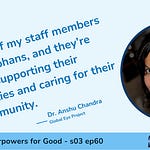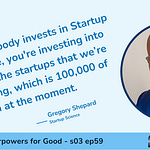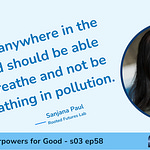Devin: What do you see as your superpower?
Denise: I think my superpower is communication and being a catalyst, a networker. So connecting people together is probably my most important superpower.
“The inspiration was actually my husband’s kung fu group, believe it or not,” says Denise Hayman-Loa, CEO of Carii, which operates Connective, of the company’s origin, eight years ago. “It’s a kung fu group that’s global.”
The organization of her husband’s, Wun Fie Loa’s, group includes local chapters with regional, national and global leadership and organizational layers. Participants had trouble communicating with all the different layers to coordinate training and retreats.
“So, he—my husband—had the genius idea of coming up with this local, yet global, connection,” Denise says. “It’s a whole ecosystem of connected communities.”
“Our community platform is very robust, and it has all the features one would need to both communicate and collaborate, but also to take action,” she says. The “actions” function is a project management tool. “We purposely called it ‘actions’ because a lot of our clients said we want people to not just talk but to take action around causes.”
There is a free, small group option on the platform, along with various affordable, self-managed options. Most clients, however, opt for a white-label option where the Connective manages more of the setup and administration.
The company hosts a variety of communities. One is a partnership Denise leads with Peter Fusaro and Don Schreiber called Connected Earth. Free to join, the online community features content from FinTech.TV.
“Connected Earth is all about connecting impact investors with the impact companies and also creating a whole community around education, around impact, around different impact investments and sharing that knowledge and insight,” Denise says.
She says Earth stands for ecology, agriculture, real estate, technology and health care or humanity.
A few years ago, Denise and Wun discussed why they continued to do the hard work of leading a startup. “I turned to him, and he turned to me, in almost the same time and said, ‘I want to make the world a better place,’” she says.
Connective communities differ from social networks in various ways, including the absence of algorithms and the fact that clients own their data. With multiple levels of privacy, a community can be made entirely private.
Connective is the embodiment of Denise’s superpower: catalytic networking.
How to Develop Catalytic Networking As a Superpower
As a catalytic networker, Denise says, “If you say to me, ‘Do you know anybody who does X?’ I can think of people who do X and connect you with them.”
While she believes that some of her ability is innate—she describes herself as an extrovert—she offered some advice for strengthening this ability.
Think positively. “I think you have to get out of yourself and think positive thoughts about connecting with other people, that it can only be good things and it can only produce more action and not less,” she says.
Build on shared values. “Surround yourself with people you like. And care about who have common philosophies,” she says.
Try it. “I think you can practice by trying it, by thinking about who I know and who should they know, and what they know,” Denise says. “Sometimes it’s connecting people to people.”
Share knowledge. “I think a lot of it has to do with knowledge sharing and thinking about what other people do that you know, and what might help them do it better,” she says. “It might be a book you read; it might be an article you read; it might be a newsletter that just came across your desk. Whenever I read anything, any meaningful newsletter, I think about people.”
Keep learning. “I’m the daughter of a literature professor, so I grew up reading,” Denise says. “For me, part of my day is to learn something new every day.”
By following Denise’s example and advice, you can make catalytic networking a superpower enabling you to do more good.














